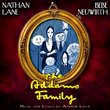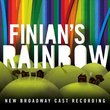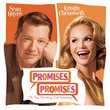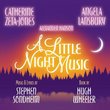| All Artists: George / Wright, Robert Forrest, Mantovani Orchestra, Adele Leigh, Kenneth Mckellar, Robert Merrill, Regina Resnik, Ian Wallace Title: Kismet (1963 Studio Cast) Members Wishing: 0 Total Copies: 0 Label: Dutton Labs UK Release Date: 11/9/2004 Album Type: Import, Original recording remastered Genres: International Music, Special Interest, Pop, Rock, Classical Styles: Europe, Continental Europe, Holiday & Wedding, Easy Listening Number of Discs: 1 SwapaCD Credits: 1 UPC: 765387810429 |
Search - George / Wright, Robert Forrest, Mantovani Orchestra, Adele Leigh :: Kismet (1963 Studio Cast)
 | George / Wright, Robert Forrest, Mantovani Orchestra, Adele Leigh Kismet (1963 Studio Cast) Genres: International Music, Special Interest, Pop, Rock, Classical
|
Larger Image |
CD DetailsSimilar CDs |
CD ReviewsGreat Music And A Definite Collector's Item Sir Robert | TAIWAN | 03/26/2005 (5 out of 5 stars) "This I think is a lesser known version of "Kismet." But why it is lesser known, I know not. The music and the singing are not bad; in fact, it's more than above average. I think this will add to a nice collection of musicals. I fell in love with this music around twelve years ago, having heard it from the radio. I requested the station to play it again, and that was how I got to record it in cassette. Years later, a kind man by the name of Mr. Art Hilgart from "Broadway Revisited" informed me that the CD is available. But alas, I was too late: I tried looking for this treasure all over Amazon, Footlite and other online retailers, only to be told that all copies had already been sold out. Fortunately, here again is Decca's re-release. One of the strong points of this recording is that there are no miscasts, every character sounds as he or she should be. Listen to "Stranger in Paradise," and you will immediately feel that these are young people singing (Adele Leigh and Kenneth McKellar, and how they did it very very well! Bravo!!) Another strong point is that the singing has verve, and playful when it's called for. This is very essential because people need to imagine the songs, as they are not in the theatre watching the play. The third strong point is the splendid cast, they all sing magnificently. Listening to Regina Resnik's Lalume, you will imagine that if this were a real show, she'd be stealing it. Ian Wallace's Wazir is more than up to the lyrics of "Was I Wazir," sinister and comical at the same time. Now, some say that Bob Merrill's baritone (the character Hajj) comes out as syrupy and too correct. I don't think that's the case at all, and.... who cares?? Listen carefully and you will realize that the cast had fun recording this, and they all fit together nicely. The fourth strong point, as you might have guessed, is Mantovani and his orchestra. Listen to the orchestration, it's top rate!! There is nary a false note to be found anywhere. And finally, (now this may sound silly,) the music reverberates. Could this be the effect of Phase 4 Stereo? Tip: If ever you listen to this recording, turn up your bass and treble a little higher than usual." Not a first choice for "Kismet," but many good points Alan | New York, NY | 10/28/2007 (4 out of 5 stars) "This "Kismet" conducted by Mantovani probably shouldn't be your first or only "Kismet" because numerous small (and some not-so-small) changes are made to the score, but it has many excellent elements. Fans of the score who already have one or more recordings of it may find this an enjoyable addition to their collection.
This 1963 recording was part of London's Phase 4 series. Those recordings featured ostentatiously spectacular sound that sometimes bore little resemblance to what would be heard in a live performance. Mantovani conducting theatre music may sound odd, but he had started as a pit conductor in London musicals and revues. His orchestra certainly plays beautifully and he achieves some gorgeous effects. Of course, he uses a far larger orchestra than you'd hear in the theatre, but that's mostly a positive in this score. If there are moments when you notice the orchestra more than you do on other recordings of "Kismet," most of the time it's pleasing rather than distracting. Exceptions occurs in "Stranger in Paradise" and "And This Is My Beloved," where additions to the score that show off the Mantovani strings (with engineering representing Phase 4 at its most unnatural) destroy the mood that the singers (and the orchestra up till that point) have created. Of the five featured singers, three cover both a principal role and one of the smaller roles. Kenneth McKellar sings the Caliph and the opening "Sands of Time," while Regina Resnik sings Lalume and the "Zubbediya" solo, and Ian Wallace sings "He's in Love' in addition to the Wazir's music. This isn't a very theatrical choice (on what isn't a very theatrical recording), but getting to hear such superb voices in those numbers has its rewards. And the quality of the singing is what really makes this recording. Robert Merrill may be the second-best Hajj on disc, after Alfred Drake. Merrill probably has the best voice of anyone who's recorded the role (which is saying a lot). To a greater extent than you might expect from an opera singer, he phrases the lyrics with naturalness and seeming spontaneity. Despite the splendor of his voice, he sounds like a bit of a doofus, but that makes some sense for the role. Drake's Hajj, in comparison, sounds like a brilliant guy who should have found his way out of poverty a long time ago. (Of course, Drake is still supreme in the role.) Merrill's diction is occasionally sloppy, he's a bit too low-key at points, and his Brooklyn accent sometimes comes through, but his strengths outweigh his weaknesses. Some fabulous theatre singers have recorded Lalume. Resnik can't surpass the best of them, but she holds her own. She has more voice than any of them, and (even more than with Merrill) her words come across well and her phrasing is idiomatic. Adele Leigh is not my favorite Marsinah on disc, but she's very good. She sometimes really pulls the vocal line out of shape, but given how lovely the results tend to be, I can't complain. McKellar sings the Caliph's numbers very well, if not as passionately as some other singers who've recorded it. Where he really shines is in "Sands of Time," which is perhaps the best on disc. Rounding out the principal singers, Wallace delivers a "Was I Wazir?" that beats everyone except Henry Calvin (on the original Broadway cast recording and the Lincoln Center recording). The chorus performs very well, and their words come through clearly. And despite a couple of moments of slight distortion and a few annoying stereo "effects," the sound holds up well (except for those two sections when the strings sound totally overblown). I do wish this disc had a more theatrical feel and that fewer changes were made to the score, but the general vocal and orchestral splendor suit the score. I'd still go with the two Alfred Drake recordings ahead of this one, with the original Broadway cast first and the Lincoln Center recording second. I'd rank this one about equal to (although very different from) the more theatrical and complete Sony recording with Samuel Ramey's strongly sung but somewhat stolid Hajj and a generally good supporting cast The most complete recording is the TER/JAY recording, but despite good conducting, the cast generally ranks behind the others, except for Judy Kaye's terrific Lalume." |

 Track Listings (17) - Disc #1
Track Listings (17) - Disc #1



